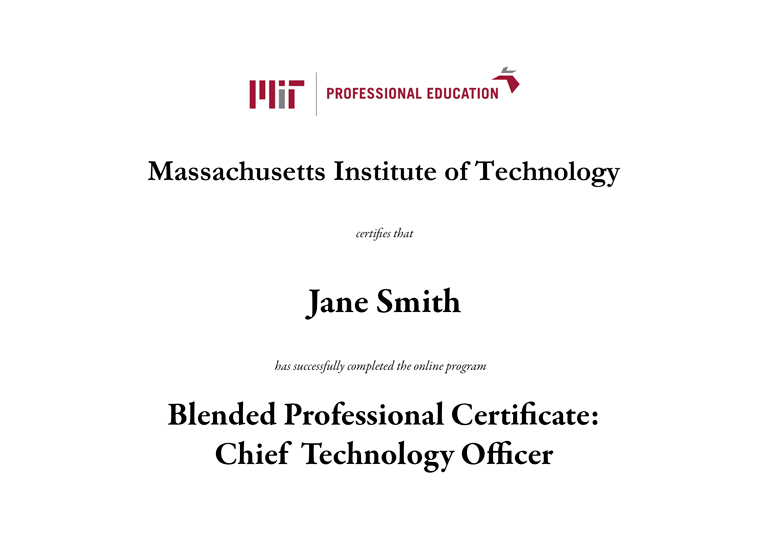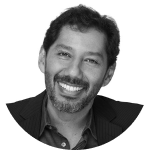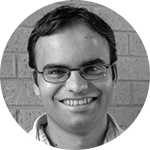Why is a CTO integral to the quality of your organization?
The unceasing acceleration of technological change makes it critical for companies and organizations to always stay one step ahead of technology trends and have the ability to anticipate disruptions before they become imminent. That’s where the role of a CTO becomes integral to your business.
The phenomenon of the Fourth Technological Revolution makes the role and responsibilities of a CTO inherent in all contemporary companies. The CTO encourages employees to have a forward-thinking mindset about how certain technologies could strengthen a company’s position in the marketplace and stay ahead of its competitors. Therefore, a CTO that succeeds today must continue to push forwards and be aware of other companies that experiment with new technologies as well.
76%
The effects of the pandemic drove 76% of businesses to strategize long-term changes in their IT.
Source: Cyberstates
72%
72% of business executives believe artificial intelligence is going to be a business advantage to them in the future.
Source: Anna Djurovic, GoRemotely
$15.7 trillion
Artificial intelligence is projected to add $15.7 trillion to the global economy by 2030.
Source: Anna Djurovic, GoRemotely
Blended Professional Certificate: Chief Technology Officer
High-quality projections indicate massive technological shifts on the horizon. Significant changes are already occurring in our present-day architecture. The implications of blockchain, Internet of Things (IoT), Artificial Intelligence (AI), and other novel technologies are giving way to new understandings and new standards of performance. In order for top-level organizations to thrive, they need elite and experienced professionals to push systems forward, proactively embracing innovation to drive culture, management, infrastructure, and profits.
The Learning Journey
In this 12-month program, participants will explore these five courses that will equip you with the tools and frameworks to lead the technological strategy.
1. Leadership and Innovation
With this program, participants will learn to lead by coming to know themselves better, harnessing their own creativity, and building teams and organizations through the culture of innovation.
2. Management of Technology: Roadmapping and Development
Walk the path of technology through its history, its different tools and methods, its fundamental limits, and the theory and empirical evidence for technology evolution over time.
3. Management of Technology: Strategy and Portfolio Analysis
Expand on your knowledge of technology management and learn to elaborate an organizational technology portfolio based on multiple technology roadmaps.
4. Machine Learning: From Data to Decisions
A program that guides professionals through the fundamentals and applications of machine learning, trains them in analyzing and understanding data, and ultimately prepares them to master confident data-driven decision making within their organizations.
5. Cloud & DevOps: Continuous Transformation
This online program that delves further into the technological transformation currently underway, with a practical approach and applicable to different industries and sectors.
6. Impact project
The Impact Project is a transversal project that will be carried out throughout the Blended Professional Certificate. Participants will work in teams on a series of assignments that will culminate in a final presentation on the MIT Campus.
Participants will be given a choice of two tracks for this project:
1. Work on a project with an industry challenge provided by the learning facilitator.
2. Work on a project (industry challenge) chosen by the group and approved by the learning facilitator.
Learning Objectives
1. Develop individual reflections on the theoretical and practical concepts covered throughout the certificate courses
2. Apply knowledge acquired in courses to real-life industry cases
3. Integrate and connect ideas from each course, resulting in transversal knowledge acquisition
4. Build a community of practice in small groups, proposing concrete solutions to complex industry problems
Premium Access to the MIT Professional Education Ecosystem
You will have exclusive access to networking events, live online sessions with guest speakers, company visits, and the international MIT Alumni network.
Career Development
You will participate in sessions with a career advancement coach who will guide you toward your goals and prepare you for new and exciting challenges.
Digital Pathway Access
You will have access to a gallery of webinars in multiple languages on a wide variety of relevant topics. Additionally, you will be invited to attend upcoming live webinars.
Application Process
To be considered as an eligible candidate, please proceed with the following steps:
Application
Round 1
Fee: .
Round 2
Fee: .
Round 3
Fee: .
What is included in the fee?
- The program fee includes teaching fees, access to online coursework, and transportation to the different activities taking place during the face-to-face events.
- The program fee does not include accommodations for the in-campus weeks, travel expenses (domestic, international, visa fee, and more), and other expenses not specifically mentioned in the fees.
Key Takeaways
Throughout this professional program, you will:
1.
Find out how to conduct business in a multicultural environment
2.
Quantity technology progress over time using relevant figures of merit .
3.
Map technologies to a product / service and set realistic figures of merit-based targets.
4.
Shape the R&D strategy and portfolio of an organization based on a set of technology roadmap and effective R&D execution.
5.
Comprehend the system dynamics modeling approach to model technical innovation.
6.
Anticipate and prepare for the technological evolution.
7.
Understand the globality of data and master the 4 steps for implementing machine learning plans.
8.
Learn the characteristics of datasets and become familiar with how to use effective statistical tools to identify and clarify data.
9.
Obtain an overview of the theory and practice of new technologies that lead to digital transformation.
10.
Develop a vision about how to apply technologies to organizations and to your professional career.
In addition, you will receive a Certificate of Completion
All the participants who successfully complete Chief Technology Officer will recieve a Certificate of Completion from MIT Professional Education. Furthermore, the participants who complete the program recieve Continuing Education Units (CEUs)*.
To obtain CEUs, complete the accreditation confirmation, which is available at the end of the course. CEUs are calculated for each course based on the number of learning hours.
* The Continuing Education Unit (CEU) is defined as 10 contact hours of ongoing learning to indicate the amount of time they have devoted to a non-credit/non-degree professional development program.
To understand whether or not these CEUs may be applied toward professional certification, licensing requirements, or other required training or continuing education hours, please consult your training department or licensing authority directly.

This Blended Professional Certificate: Chief Technology Officer is designed for
- Leaders of technological departments or projects who need to understand the evolution of technology and the optimal technology management for their organizations.
- Current and aspiring C-suite executives from Digital, IT, Marketing and Strategy responsible to setting up the corporate and product strategy.
- Senior consultants and entrepreneurs that need to understand the role of technology in the company´s growth and portfolio.
- Senior executives looking for innovating and leveraging technology.
Participants are required to have:
- A minimum of ten years of experience working in a managerial position
- At least 3 years of experience managing projects related to technology, innovation, or business development
- International experience is appreciated
Meet the instructors of this program
Listed in alphabetical order

David consults with technology executives on topics related to developing leadership among engineers, researchers, and other technical experts. He has published on organizational culture, ethics, engineering leadership, and developing management and leadership skills. David holds a Ph.D. in Management from the University of Texas at Austin, where he earned his B.A., B.B.A., and M.A. degrees. He lives in Weston, Massachusetts, with his wife and three children.

Dr. Abel Sanchez holds a PhD from the Massachusetts Institute of Technology (MIT) and teaches MIT courses in cyber security, engineering, blockchain and data science. He has been involved in developing educational software for Microsoft and establishing the Accenture Technology Academy. He has produced over 150 educational videos, has 10 years of experience with learning management systems and has made deployments in the Americas, Asia and Europe.

His current research interest is in developing large-scale machine learning algorithms for unstructured data, with particular interest in social data. He has made contributions to the development of “gossip” protocols and “message-passing” algorithms for statistical inference that have been pillars of modern distributed data processing systems.
He cofounded Celect, Inc., which has been part of Nike since 2019. In 2019, he cofounded Ikigai Labs with the mission of building self-driving organizations by empowering data business operators to make data-driven decisions with the ease of spreadsheets.
His work has been covered in popular press including The New York Times, Forbes, and Wired, and he has written several award-winning papers in machine learning, operations research, and computer science. He has also been awarded the 2010 Erlang prize from the INFORMS Applied Probability Society.

Since 2001, de Weck’s group has developed original quantitative methods and tools that explicitly consider manufacturability, flexibility, commonality, and sustainability, among other characteristics. De Weck’s teaching emphasizes excellence, innovation, and the irrefutable bridge between theory and practice.
- De Weck holds a degree in industrial engineering from ETH Zurich and an M.S. in aeronautics and astronautics from MIT.
- He earned his Ph.D. in aerospace systems from MIT.
- De Weck was an engineering program manager on the F/A-18 aircraft program at McDonnell Douglas.

He is author and coauthor of more than 250 articles in journals and conferences. Professor Williams teaches courses on the basics of programming, modern software development, the architecture of web, cloud and blockchain systems. In addition, he holds a BSc in Physics from Oxford University, an MSc in Physics from UCLA, and a PhD from the University of Swansea.